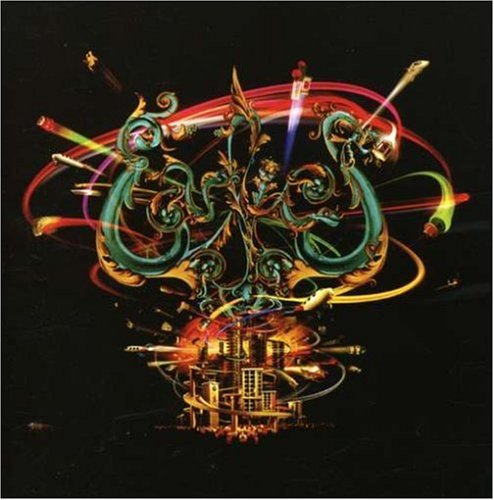
The Earlies
Enemy Chorus
Release Date: Jan 23, 2007
Genre(s): Indie, Rock
Record label: Secretly Canadian
Music Critic Score
How the Music Critic Score works
Album Review: Enemy Chorus by The Earlies
Fairly Good, Based on 4 Critics
Based on rating 7/10
Though These Were the Earlies was the Earlies' debut album, it was also a collection of the EPs that they'd recorded over the span of several years. Keeping that in mind helps explain why their second album, The Enemy Chorus, is a fairly drastic change from the mellow experimentalism of their first. While the band still sounds eclectic, their eclectic sounds are now in service of a much more organized -- and much darker -- set of songs.
Based on rating 3/5
With half of their number residing in Texas and the rest in Burnley, Lancashire, the Earlies are uniquely geographically challenged. Such impracticalities did not hinder their much-lauded 2004 debut, These Were the Earlies, an album that is equalled but never quite surpassed by this spasmodically diverting successor. With their neo-psychedelic soft rock, the Earlies are neo-hippies at heart, with likably quirky single Burn the Liars evoking the whimsical progressive pop of Super Furry Animals.
Opinion: Average
When Texas and England butt heads, you get a struggle between psych-phonic and electronic. The Earlies, former Texans Brandon Carr and JM Lapham and Brits Giles Hatton and Christian Madden, are indeed combative on this sophomore effort, an unwieldy amalgamation of American pop and British mood. On opener "No Love in Your Heart," the violins lead, then the synth floats in, lending a prog vibe that permeates much of Chorus.
Opinion: Poor
Despite picking up a rep and critical kudos after releasing their debut on Midwest flagship Secretly Canadian, The Earlies demonstrate once again why they fail where kindred supergroups like Polyphonic Spree succeed. The traits that often gives these psychedelic groups teeth — orchestral density, blindingly bright production, spacey tech-tures — are all there, but the Earlies still manage to stymie any chance at broader appeal. One of the problems is that the Earlies don’t seem to take advantage of their weaknesses.

